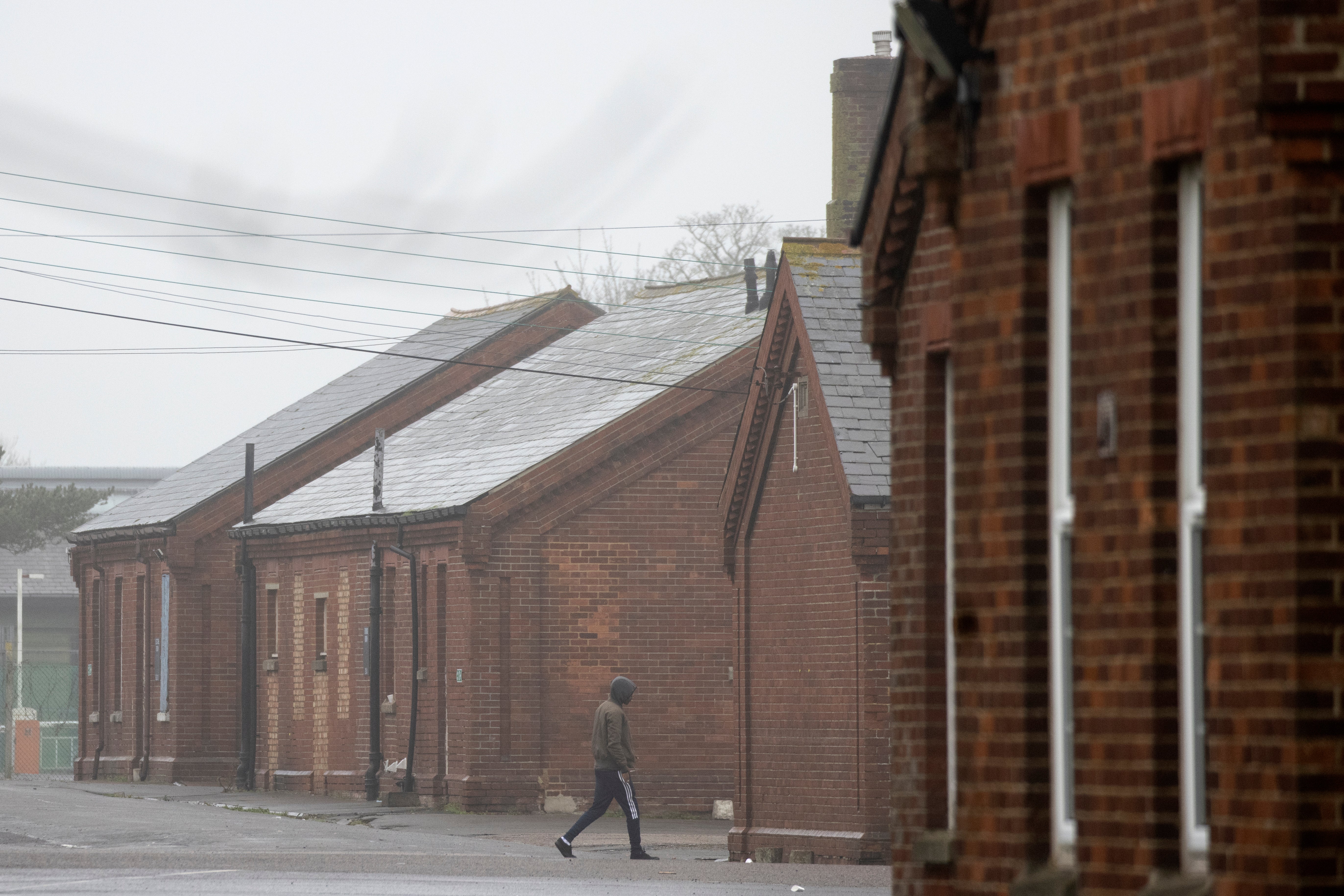The events at Napier Barracks are a disgrace – the government has to do much better
Editorial: The NHS warned that housing asylum seekers in dormitories was inappropriate and a Covid-19 outbreak was always a risk, whatever the Home Office says

As is often observed, Covid-19 does not discriminate between human beings, and the blameless refugees marooned in Britain’s shameful migrant camps are certainly no exception to that rule.
The NHS warned about the lack of ability to social distance at one camp in particular – Napier Barracks near Folkestone – which faced a Covid outbreak of close to 200 infections earlier this year. Kent and Medway Clinical Commissioning Group (CCG) told the Home Office that there were “too many people housed in each block to allow adequate social distancing and to prevent the risk of spread of infection”.
This sober clinical assessment stands in stark contrast to the account given by Priti Patel about the outbreak in the former military site. Ms Patel blamed the migrants for “mingling”, as if they were so careless about their lives and those around them that they ignore the basic advice.
It stands to reason that former dormitories for army personnel are not ideally designed for social distancing and the CCG said that the barracks were “not built to house people on a long-term basis, they were built to facilitate the military when they are on exercise for short periods of time”.
It is a disgrace this should have been allowed to happen, given that everyone has understood the risks for so long, and the NHS warned of the dangers. It is at best negligence. The refugees have been required to sleep in dormitories of up to 28 people, with only plywood dividers or sheets between beds and shared bathroom facilities.
Should fresh arrivals appear at this camp then the consequences for the health of those they come into forcibly close contact are plain. For what it is worth, the government is sending in the inspectors. The Independent Chief Inspector of Borders and Immigration (ICIBI) has sought the assistance of Her Majesty’s Inspectorate of Prisons (HMIP) to assess conditions in the Napier Barracks, which date back to 1890, and the similar ex-army camp at Penally in Pembrokeshire.
There may be some in government who believe that providing such inadequate accommodation will act as a deterrent to asylum seekers or migrants making the often dangerous journey to the UK. If so, they misunderstand matters, and in an ironic fashion. It is precisely because the conditions of war and poverty they have escaped are so life-threatening that even such camps will appear as a safer haven.
Most residents remained in the barracks until several weeks ago, when they started to be moved to hotels. Around 60 people are currently believed to be in the camp. There is little need for inspections or reports now. Residents, who find themselves there through no fault of their own, should be moved and no new arrivals should be permitted. The government then has to show that lessons have been learnt – and do much better to protect those in its care.


Join our commenting forum
Join thought-provoking conversations, follow other Independent readers and see their replies
Comments